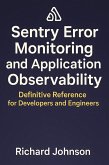In an era defined by architectural complexity and relentless change, "Principles of Observability for Modern Systems" delivers a comprehensive treatise on illuminating the inner workings of contemporary distributed infrastructures. Addressing the diverse challenges introduced by containers, microservices, serverless deployments, and dynamic cloud-native orchestration, this book equips engineers and leaders alike with frameworks for understanding, diagnosing, and mastering uncertainty in multi-tenant and hybrid computing environments. Through astute analysis of modern failure modes and emergent behaviors, it underscores the necessity for robust, context-rich observability in maintaining resilient, scalable, and secure systems.
The book is meticulously structured to bridge foundational theory and advanced best practices. Key chapters explore the evolution of observability from control theory to its practical realizations-clarifying core distinctions between observability and monitoring, and mapping the intricate landscapes of metrics, logs, and traces. Readers will find in-depth discussions of instrumentation techniques, trade-offs, and signal taxonomy, complemented by actionable guidance on implementing low-overhead data collection, standardizing telemetry with OpenTelemetry, and effectively managing confidentiality and compliance. Emphasis on interoperability, scalable data architectures, and adaptive analytics empowers organizations to transform raw telemetry into operational wisdom.
Looking forward, "Principles of Observability for Modern Systems" offers strategic insight into the future of the field-covering topics such as AIOps, autonomous remediation, unified observability across cloud and edge, and the ethical and societal ramifications of system-wide visibility. This volume is essential reading for architects, SREs, platform engineers, and technical decision-makers intent on building sustainable, compliant, and future-ready observability solutions that support organizational excellence and innovation.
Dieser Download kann aus rechtlichen Gründen nur mit Rechnungsadresse in A, B, BG, CY, CZ, D, DK, EW, E, FIN, F, GR, H, IRL, I, LT, L, LR, M, NL, PL, P, R, S, SLO, SK ausgeliefert werden.









